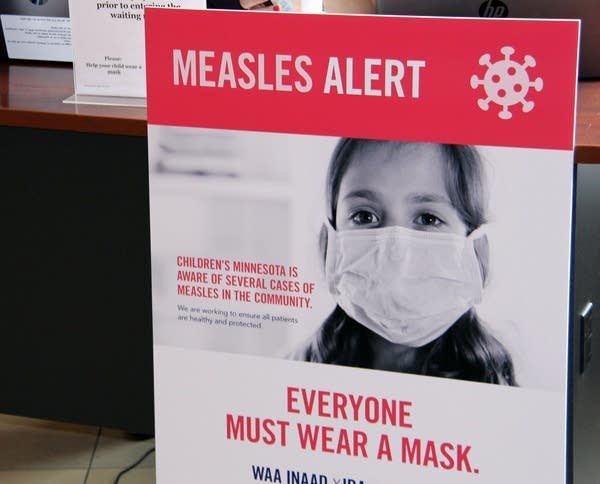Inside the fight against the measles outbreak

Signs at the entry to Children's Minneapolis's primary care clinic on May 10, 2017.
Mark Zdechlik | MPR News
Go Deeper.
Create an account or log in to save stories.
Like this?
Thanks for liking this story! We have added it to a list of your favorite stories.


